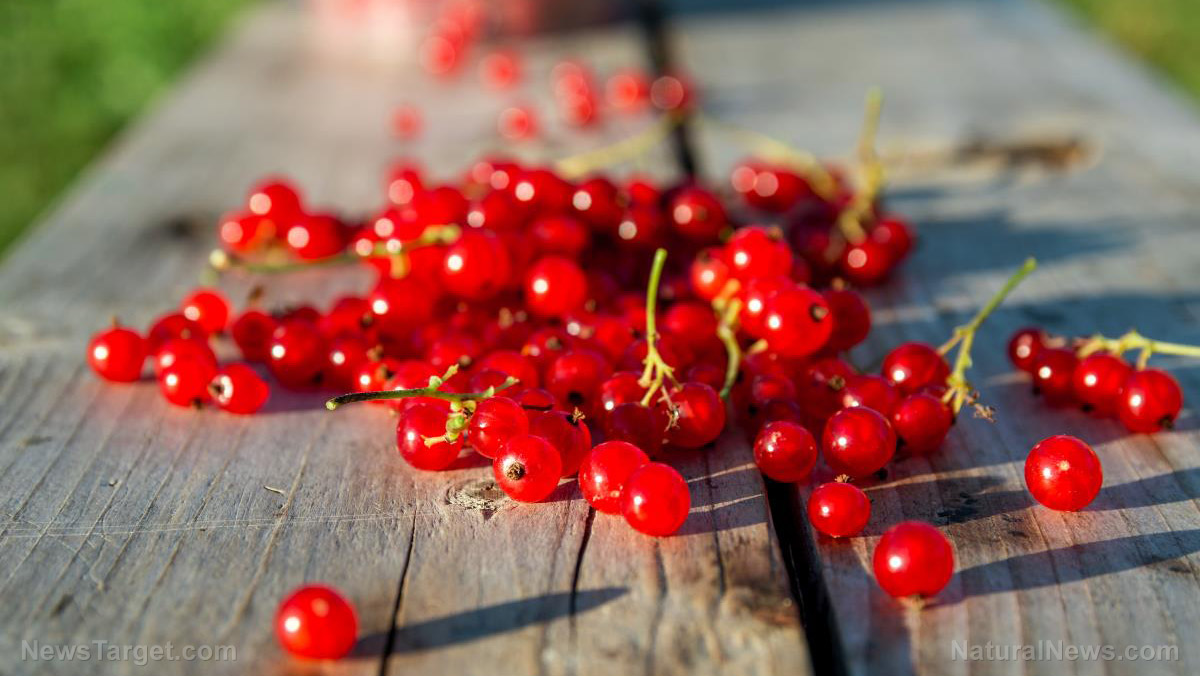7 science-backed health benefits of cranberries
06/24/2020 / By Zoey Sky

Cranberries are a tart superfood rich in vitamin C. Often recommended as a natural remedy for urinary tract infections (UTIs), several studies have shown that cranberries offer other health benefits, such as potentially fighting antibiotic-resistant superbugs.
Cranberries are rich in vitamin C
Vitamin C, also called ascorbic acid, is a water-soluble vitamin that helps strengthen your immune system. However, since humans can’t produce vitamin C, you need to boost your intake of this essential vitamin by consuming nutritious superfoods like cranberries.
Vitamin C has a role in growing and repairing body tissue, healing wounds, as well as keeping your bones, cartilage, skin and teeth healthy and strong. In addition, vitamin C functions as an antioxidant that protects your body from free radical damage linked to certain cancers and heart disease.
Vitamin C also promotes healthy aging. Consuming foods rich in the vitamin helps reduce the risk of cartilage loss in people who have osteoarthritis.
Cranberries help fight UTI, ulcers and gum disease
Cranberries are also popular as a natural remedy for treating and preventing urinary tract infections. If you have a UTI, consuming cranberry juice helps prevent bacteria from sticking to the walls of your urinary tract.
This natural defense also occurs in your stomach to prevent ulcers and in your mouth to prevent gum disease.
Cranberries are rich in antioxidants and anti-inflammatory compounds
Cranberries are only second to blueberries when it comes to antioxidant potency. (Related: Cranberries offer an excellent way to boost your health, say nutrition researchers.)
Tart, refreshing cranberries also contain anti-inflammatory compounds. A study published in the journal Nutrition Research demonstrated that people who consume cranberry juice have lower levels of C-reactive protein (CRP).
CRP is a blood marker of inflammation, which is a confirmed trigger of conditions such as premature aging, cognitive decline and chronic illness.
Cranberries support cardiovascular health
In The Journal of Nutrition, findings from a randomized controlled trial showed that cranberries can help improve artery flexibility. This means consuming cranberries helps improve circulation and blood flow, which then takes the pressure off your heart.
Improving your circulation may also boost energy and cognitive function and lower your blood pressure.
Cranberries boost gut health
Another study found that consuming cranberries helps increase the “good” bacteria in your gut that are linked to your digestive health, immunity and mood.
Whole and dried cranberries also contain fiber that helps prevent constipation and promotes digestive health.
Cranberries improves heart health and protect you from certain diseases
In a separate study from The Journal of Nutrition, researchers found that consuming cranberry juice boosts heart health by reducing “bad” low-density lipoprotein (LDL) cholesterol, triglycerides (blood fats) and insulin resistance.
Research also suggests that cranberries contain compounds that help slow the growth of tumors, such as breast, colon, lung and prostate cancer cells.
Cranberries can help prevent antibiotic resistance
In a study published in the journal Advanced Science, researchers from McGill University in Canada analyzed selected bacteria that cause UTIs, pneumonia and gastroenteritis.
Bacteria treated with antibiotics often typically become resistant to its effects. However, in the study, researchers discovered that adding cranberry extract prevented resistance from developing.
The cranberry extract made bacterial cell walls more permeable to antibiotics, making it harder for the bacteria to eliminate it.
The researchers hope that their findings can be used to address the overuse of antibiotics in animal agriculture, which is linked to infections that are harder to treat in humans.
How to incorporate cranberries to your regular diet
Cranberries taste rather tart to some people, so most products often add sugar or syrup to sweeten cranberry juice. It is also sometimes combined with a sweeter food or drink, such as apple juice.
However, to boost your immunity and overall health, you should consume 100 percent unsweetened cranberry juice.
Below are several delicious ways to add cranberries to your diet.
- If unsweetened cranberry juice is too much for your palate, you can still make a nutritious drink by adding the juice to a morning smoothie.
- Blend frozen whole cranberries to make smoothies.
- Warm frozen whole cranberries over low heat on the stovetop in 100 percent orange juice. Add a bit of maple syrup, freshly grated ginger root, cinnamon and cloves. Use the mixture as a warm or chilled topping for savory dishes with greens and veggies or sweet potatoes.
- Use a bit of unsweetened cranberry juice and lightly sweetened almond milk when making oatmeal or overnight oats.
- If you have unsweetened or 100 percent fruit-juice sweetened dried cranberries, fold them into nut butter.
- Add unsweetened dried cranberries to salads and whole grains.
- Make energy balls and “bark” using unsweetened dried cranberries, melted dark chocolate and nuts.
Boost your vitamin C intake and strengthen your immune health by adding unsweetened fresh, dried or frozen cranberries to your diet.
Sources include:
Tagged Under: antibiotic resistance, Cranberries, Cures, food cures, fruits, heart health, natural antioxidants, natural cures, natural medicine, Natural Treatments, nutrients, prevention, urinary tract, urinary tract infections




















